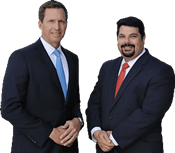I’m Emily Carter, and as a financial analyst and writer deeply entrenched in the San Francisco Bay Area’s investment scene, I’ve seen my fair share of the turmoil that allegations of financial advisor fraud can cause. It’s a wake-up call for the necessity of vigilance and careful inspection when investors place their trust in financial advisors.
The weight of these allegations and how they impact investors is significant. In my years of experience in finance and law, I’ve watched as fraudulent behaviors have not only stripped investors of their savings through unsuitable investment advice but also corroded the essential trust we place in our financial institutions and advisors.
These alleged frauds—we’re talking about lies of omission, carelessness, and outright conflicts of interest—aren’t just a danger to the individual’s investment portfolio. They shake the foundation of our entire financial market system.
Even when there’s no ill intent, the fallout for investors is severe. Real money disappears; money that’s taken years to earn. Beyond that, there’s an emotional cost; that gut-wrenching feeling when you realize the advisor you believed in has let you down. It serves as a stern warning on the broader financial stage—players in this industry must demand and adhere to transparency and accountability.
Table of Contents
 (AD) Lost money because of bad financial advice or outright fraud? You may get it back by filing a complaint. Haselkorn & Thibaut has 50+ years of experience and a 98% success rate. Don’t delay if you’ve suffered losses. (AD) Lost money because of bad financial advice or outright fraud? You may get it back by filing a complaint. Haselkorn & Thibaut has 50+ years of experience and a 98% success rate. Don’t delay if you’ve suffered losses. Call Haselkorn & Thibaut at 1-888-784-3315 for a free consultation, or visit InvestmentFraudLawyers.com to schedule. No Recovery, No Fee. |
Drilling down into the background of the financial advisor and brokerage involved
To tackle this issue effectively, we should dig into the past of the financial advisor in question and the related brokerage firm. I suggest doing a deep dive into their FINRA CRM number, a treasure trove of details on their professional behavior and history. You might uncover previous disputes or regulatory actions—a heads-up for potential investors.
Moreover, we should examine the brokerage’s role, especially their oversight responsibilities and how rigorously they verify their advisors’ practices. Any slipups here could be why investors are in this mess.
It’s a simple truth: when brokerages slack on their oversight or turn a blind eye to complaints, they’re letting fraudsters off the leash. So, when you’re picking a financial advisor, make sure you’re paying attention.
Making sense of FINRA rules: A Plain-English Take
FINRA stands guard over brokerage firms and exchange markets but isn’t part of the government. They’ve got a pretty big rulebook that spells out what brokers and firms can and can’t do.
Boiled down, any rule-breaking could have FINRA coming down hard with fines or even throwing the book at the guilty party with a suspension or outright expulsion.
Getting the hang of FINRA’s regulations is a smart move for investors. It equips you to traverse the complex market terrain by showing clearly what’s in play and what’s out of bounds.
Exploring the aftermath and takeaway lessons
The fallout from financial advisor fraud can pack a punch, often hitting where it hurts the most—perhaps draining a nest egg or funds earmarked for life’s milestones. As an investor, it’s key to realize while the legal route may offer a way back for some or all of what you lost, don’t expect a quick fix.
The real deal is this: Your best defense is to stop fraud before it starts. Keep a keen eye on your investments, run thorough checks on any advisor you’re considering, get the low-down on risks, and own your investor rights knowledge. It’s about playing the long game to steer clear of trouble.
William Shakespeare famously wrote, “No legacy is so rich as honesty.” In today’s world where finance is interwoven with our daily lives, the trust between an investor and their advisor or financial institution is priceless. It’s a bond that should be built on the bedrock of truth, honor, and clear-as-day dealings.


